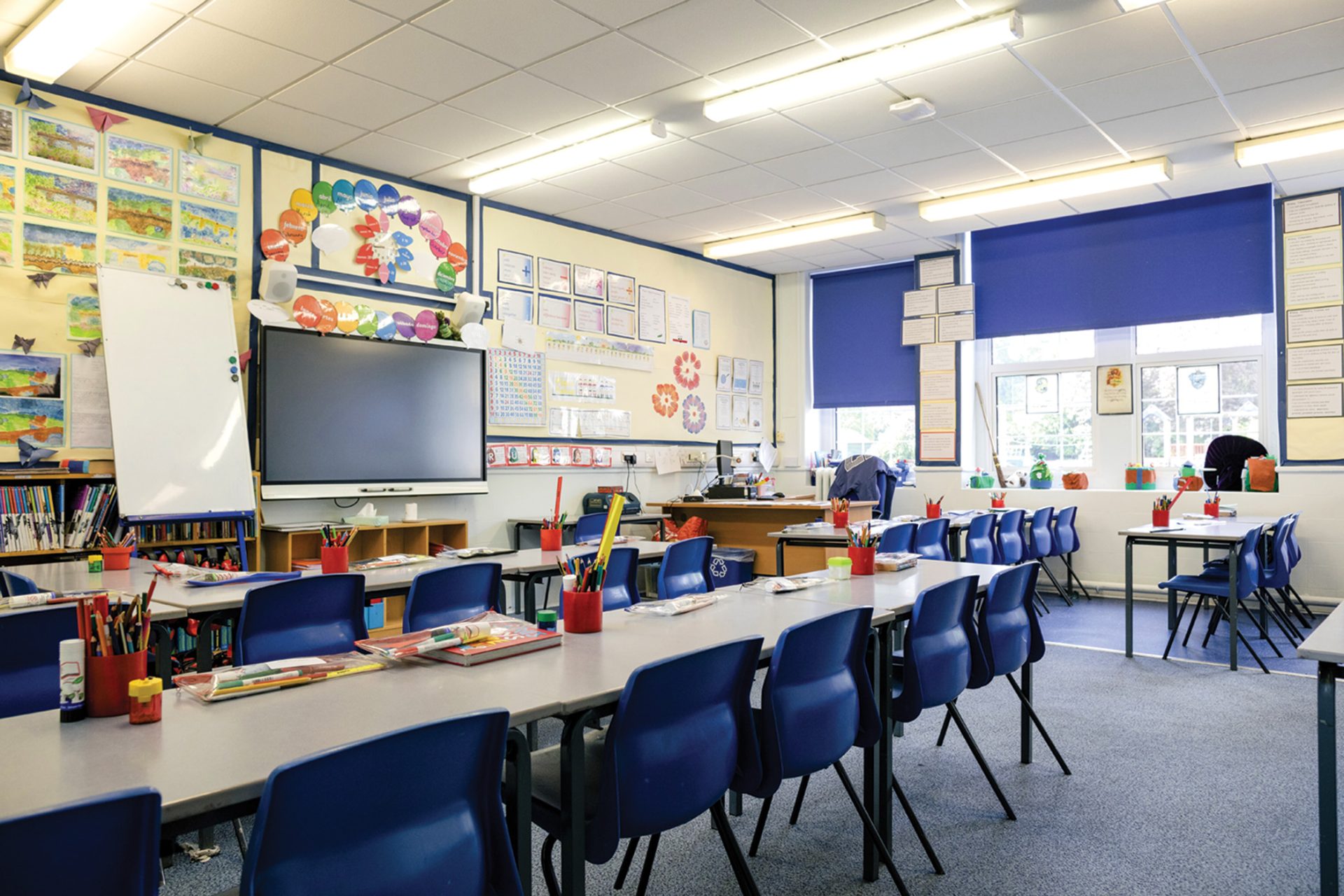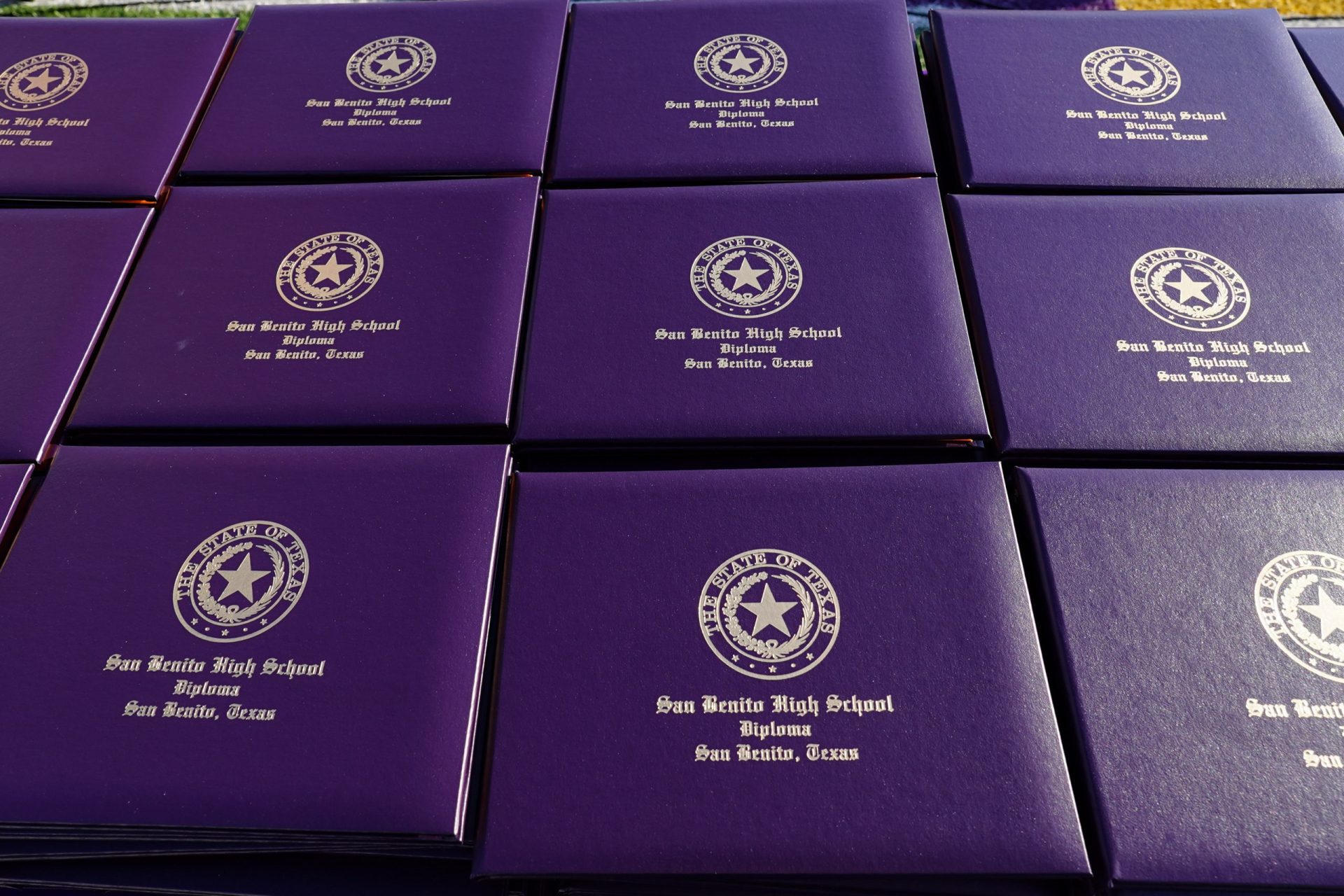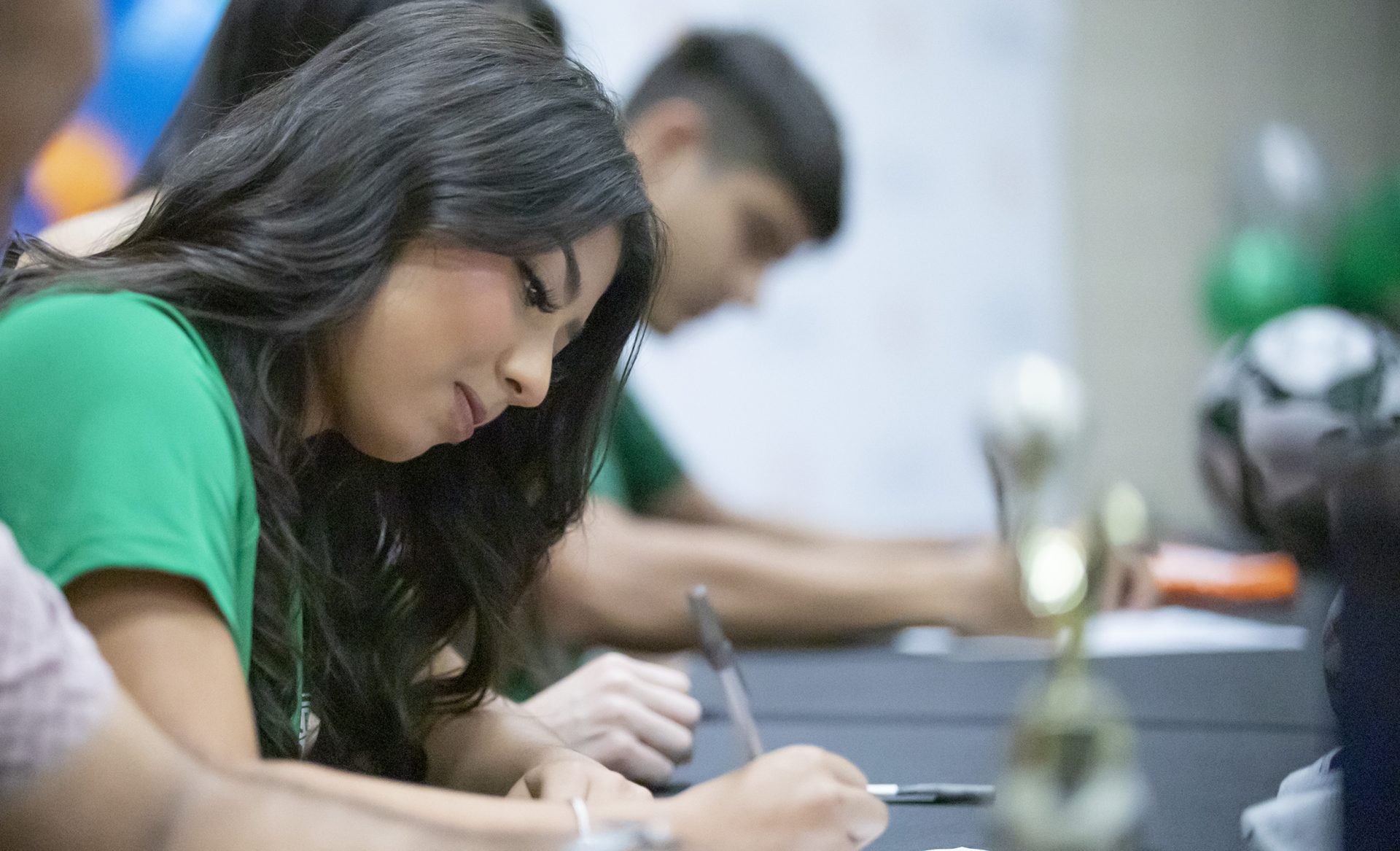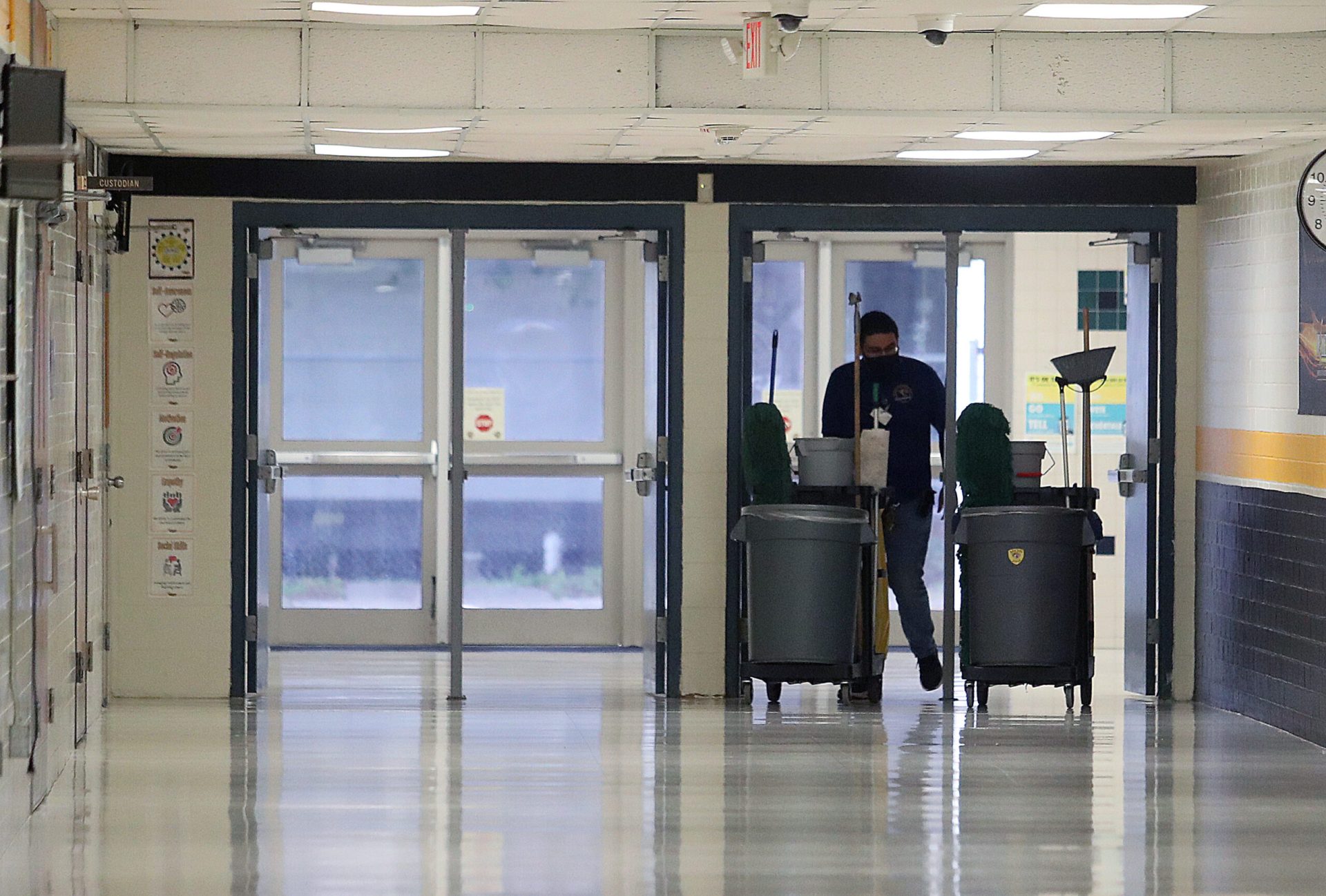|
Only have a minute? Listen instead
Getting your Trinity Audio player ready...
|
The Texas Senate late Thursday night approved its version of a school voucher program through Senate Bill 1.
However, many residents have been left concerned how this proposal could impact public education in the Rio Grande Valley.
That legislation now heads to the Texas House, which during the regular session rejected a nearly identical bill passed by the Senate.
The Senate also approved Senate Bill 2 which would add $5.2 billion to public school districts to help with teacher raises and rising costs. The bill would also increase the basic allotment of money each school gets per student from $6,160 to $6,235.
But there’s a catch: Gov. Greg Abbott said those raises are tied to whether the Texas House approves the Senate’s school voucher legislation.

School voucher push
A school voucher would give families state tax money to pay for their child’s private education.
The proposal calls for state-backed taxpayer bank accounts for parents that choose to remove their children from the public school system and transfer to a private school or to home schooling.
With the education savings account, parents can use that taxpayer money to help pay for tuition and any other related expenses.
Authored by Sen. Brandon Creighton, R-Conroe, the bill would give families $8,000. It was approved by a vote of 18-13 in the Senate.
UTRGV political science professor Andrew Smith said Abbott made passing a school voucher program a cornerstone of his latest tenure in office.
“The legislature tried to pass this bill during the regular session but a combination of liberal Democrats and rural Republicans united to defeat the proposal,” Smith said.
For Democrats, he said concerns from politicians, public school advocates, educators and teacher associations are at the forefront, ranging from potential loss of student enrollment, which can deprive a school of funding, to less accountability with private schools.

“Given the connection between race and poverty, the voucher program would benefit white Anglo children and as Senator Royce West for example, raised the concern that the voucher program could lead to the re-segregation of Texas’ schools,” Smith said.
For rural Republicans against the vouchers, Smith said the concern is that funds for rural public schools would decrease with students choosing to exit the public school system.
The bill would allocate $500 million from the general revenue fund for the next two years to pay for the program.
On Thursday night, Abbott attended a summit dinner in Austin for the Texas Public Policy Foundation, a conservative think tank and supporter of a voucher program, where he called on members of the Texas Legislature to expand education freedom, according to a press release.
“We as a state have an obligation to our kids — to get them educated — and we can do that with a universal Education Savings Account program in the state of Texas,” Abbott said. “What we are doing is running a relay race that began in 1989. The baton has now been handed off to me, and it is my job to carry it to the finish line.”
Creighton, who introduced the legislation, says the program would not take away money from public schools.
But with state funding based on public school attendance, many fear that public school districts would lose funding for each student that chooses to leave.

Valley concerns
With around 35 public school districts across the Valley, opposition against voucher programs is common.
McAllen ISD Board of Trustee President Debbie Crane Aliseda said that the proposed voucher program would essentially be taking money out of a public school and allowing it to follow a student to a private or religious school and it will create inequities.
“You’re taking out kids that have different economic backgrounds, different language, religious beliefs, different abilities, you know, different special needs and you’re pulling out different populations and you’re creating a segregated school district,” she said.
Daniella Lopez Valdez, vice president of the Brownsville ISD Board of Trustees, said it alleviates the state’s responsibility to educate all children regardless of race, gender, economic status and special needs.
“By redirecting it with this voucher system, we will never get that money recouped again,” Valdez said. “And ultimately, the accountability that the district provides in terms of food, shelter, quality education, 6,000 employees making sure we can get contracts with local vendors, it would deplete that and it would basically take away from a huge portion of funds that come into our communities and not guarantee them for the years to come.”
Valdez said the special needs community would suffer the most.

Using $5 million from the budget to make sure the special needs students have a quality education, she fears a loss of funds would impact programs like this.
Aliseda added that many school districts in the Valley such as McAllen ISD already offer choices to parents with open enrollment policies. Whenever the student goes, the money will follow them to that public school district, she said.
Jacqueline Hernandez is an Edinburg resident but chooses to send her daughter, Amethyst Facundo, to an elementary school at PSJA ISD due to the bilingual K-12 curriculum that the school district offers.
Hernandez said she thinks vouchers would hurt Valley school districts where students that are already socioeconomically disadvantaged and programs such as the one her daughter is in.
“I literally make a 25-minute drive every morning, every afternoon to drop her off and pick her up,” she said. “So I make the effort for her to embrace being in that program and if it was taken away from me, I don’t even know where I would enroll her in. I would have to pay out of my pocket to get tutoring lessons because I don’t necessarily have all the time to help her learn and then really embrace the Spanish language, the history of it.”
Hernandez added Abbott is simply not listening to his constituents and especially educators in the community.

Sylvia Tanguma, the McAllen American Federation of Teachers president, and an elementary school teacher in McAllen, agrees with this sentiment as she said public schools are in dire need of more funds and that teachers need better pay to give students a quality education.
“If you walk into any (public) school, you’re going to see the need for repair for that school,” Tanguma said. “Our public schools are rundown, and they need major upgrades, but we can’t afford to upgrade them, and what he’s gonna do with those vouchers, he’s going to give those monies that belonged in public schools, to people that can already afford to send their kids to private school.”
She said the domino effect of less funding for public schools will affect the quality of education with fewer teachers resulting in crowded classrooms and less one-on-one time with students.
Tanguma also said she was angered that Abbott created an education task force to investigate public school issues and prioritized school vouchers instead of the task force recommendations.
“Actions speak louder than words and he is saying that we are not worth anything,” she said. “Because he gave zero dollars to public education salaries, knowing that is what his educational task force recommended.”
Brownsville Herald staff writer Gary Long contributed to this report.





